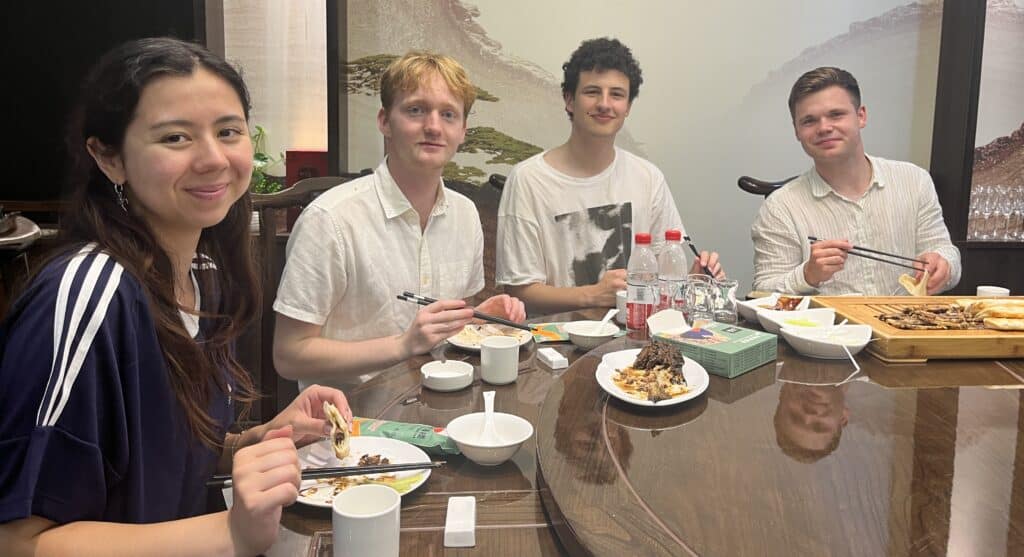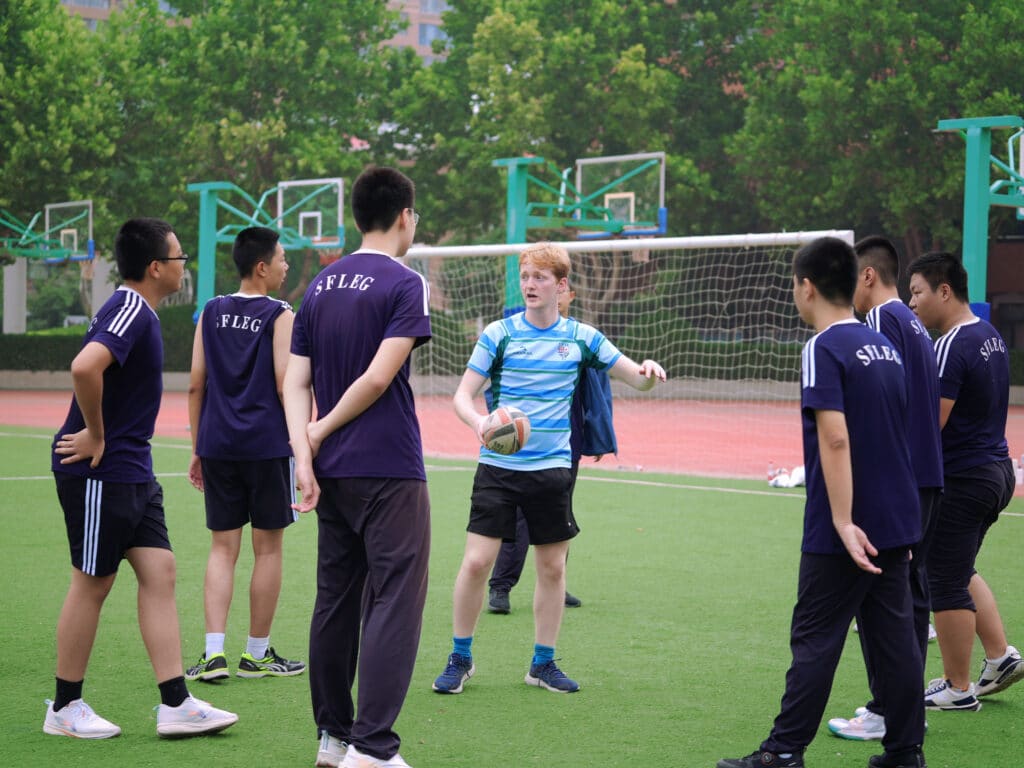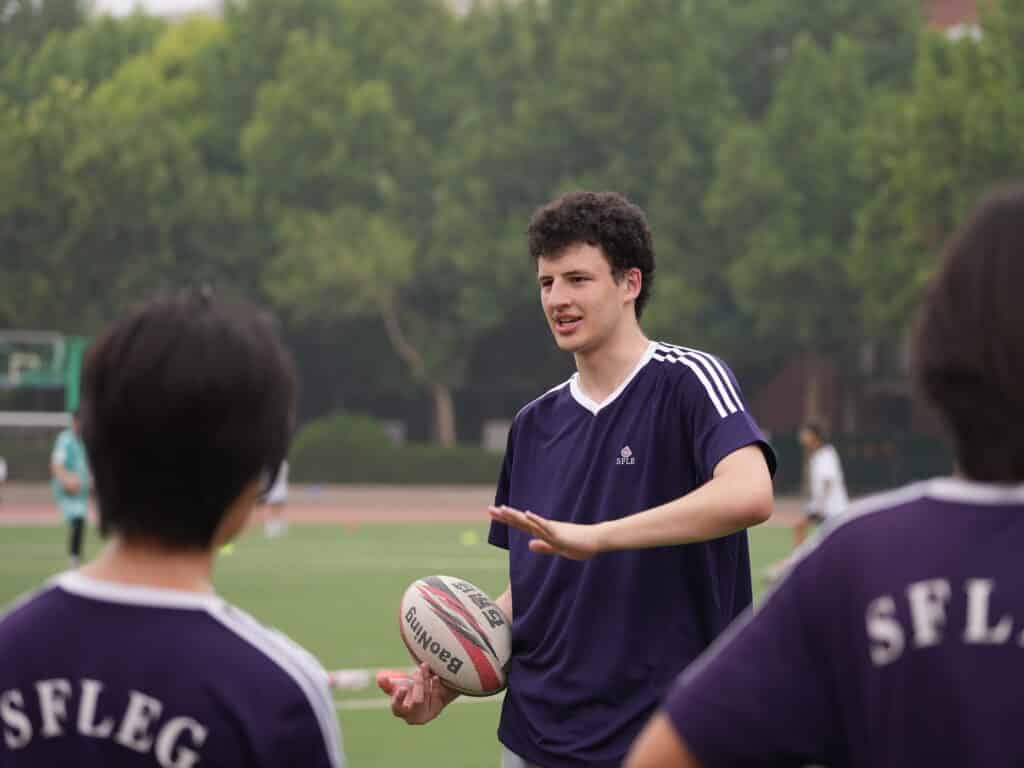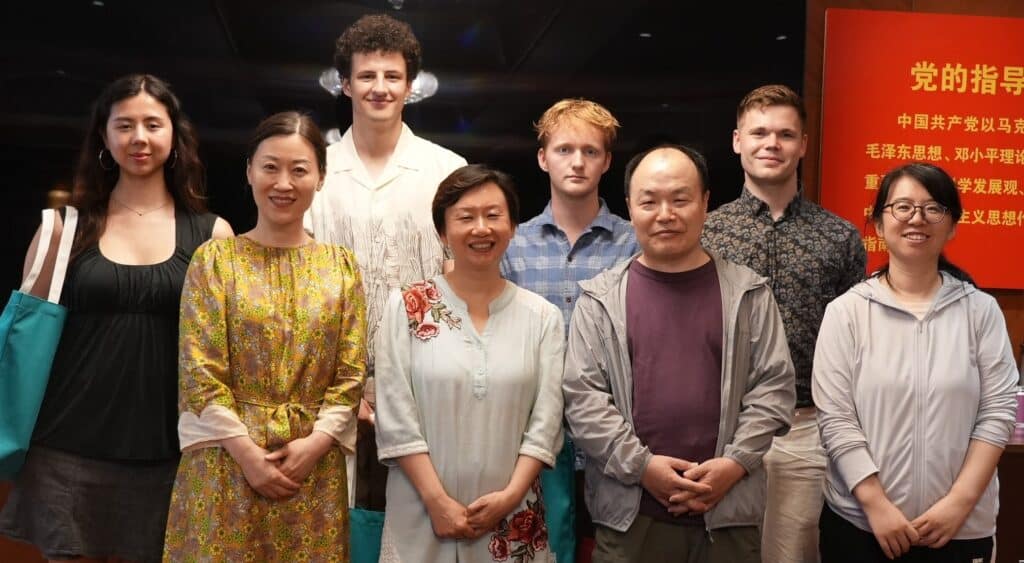Shijiazhuang Foreign Language Education Group (SFLEG) invited four undergraduate Pembroke students to undertake a two-week internship in in late June and early July. This involved participating in a summer camp, along with the opportunity for cultural exchange and the development of multicultural understanding.
Read a full blog of the trip from Nikolas and excerpts from Phoebe and Nathan’s blogs below.
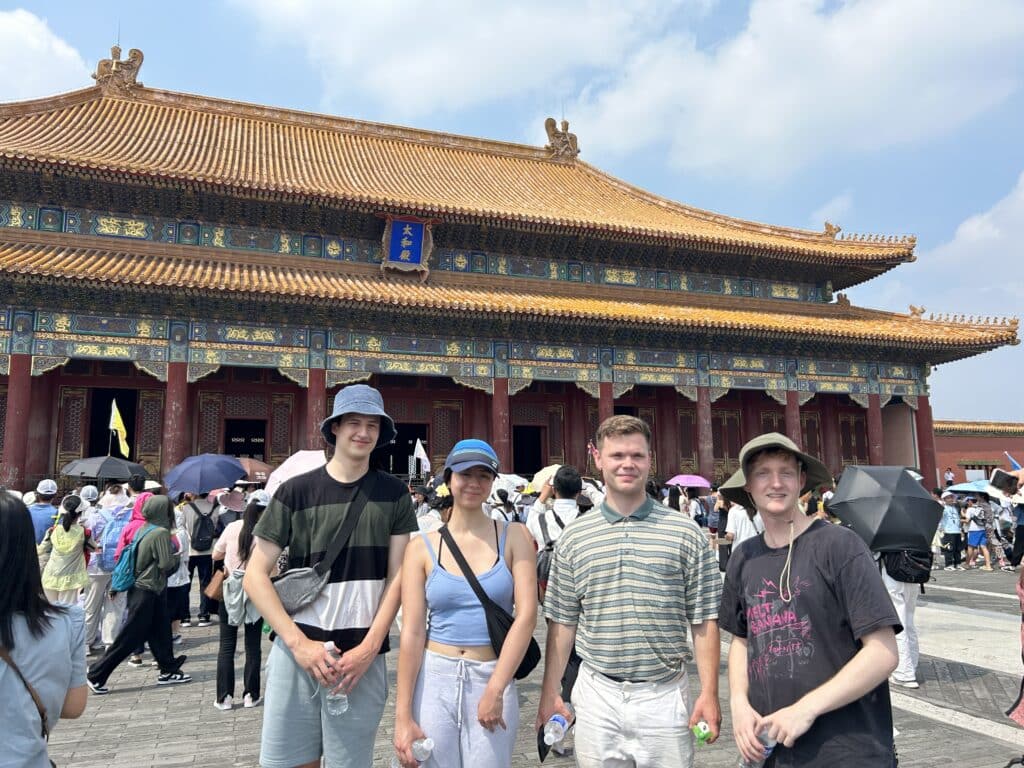
Nikolas
‘The apparition of these faces in the crowd:
Petals on a wet, black bough.’
– Ezra Pound, ‘In a Station of the Metro’ (1913)
Instrumental in the development of both Imagism and literary modernism, Ezra Pound’s poem sprung not just from his observations of commuters on the Paris metro, but also from his deep interest in the visual art and poetry of China and Japan. Inspired by traditional Asian forms, Pound, to paraphrase the poet himself, made things new in his search for the appropriate literary representation of the Western city. Both his poem and its two key strands – the whirlwind of urban modernity and the culture of East Asia – were also central to my experience teaching in China with three other Pembroke students.
Our base was Shijiazhuang, the capital of Hebei Province and roughly an hour by high-speed train from Beijing, and a place that exemplifies the extraordinary speed of Chinese urbanisation. A town of little more than 100,000 in the 1940s, its urban population has shot up towards 6 million, and the proliferation of newly built, high-density housing I observed was astonishing. Indeed, visiting China exposed me to scale in a way I had not experienced before. It is one thing to understand its population as an abstract fact; the visual impact of a place the size of Beijing is quite another.
I quickly found that visiting a foreign country as a tourist is very different to working in one; from my room within the school itself to meals in the canteen, I was far more immersed in the daily life of Chinese citizens than I ever would be otherwise. We were made to feel at home from the start, and were taken on various excursions ranging from cultural performances to a football match. Building friendships with teachers at the school made our trip all the more fulfilling; in Pound’s words, faces emerged from the crowd.
Part of my acclimatisation demanded that I quickly get the hang of using chopsticks for meals, which I more or less managed! From a culinary perspective, I was overwhelmed with delicious new dishes – I have particularly fond memories of soy-marinated cucumber salad, chuan (spiced meat skewers), spicy breakfast pancakes and a sumptuous hot pot dinner. When visiting a school in a rural district, we were invited to a traditional tea ceremony, before helping to make a cold buckwheat noodle soup, a welcome antidote to the warm weather.
Few things work as effectively as travel to illustrate the utter inadequacy of words such as big and small, similar and different. We were living and working in an environment that in some ways was nothing like what we knew but, at risk of stating the obvious, children are children all around the world. We taught 15 and 16 year olds, running two week-long summer camps and leading activities ranging from touch rugby to Shakespearean acting, as well as delivering a lecture based on our degree. As an English student, I particularly enjoyed presenting the students with English poetic engagements with Asia (including the Pound poem above), and comparing works by Shelley and Blake with canonical Chinese authors such as Li Bai.
I found the teaching experience itself to be immensely rewarding – taking a group of motivated and engaged students and seeing them grow in confidence was really amazing. At times we were forced to innovate, catering to differing levels of English ability, and adapting the sporting element to the hot and humid climate. I was struck throughout by the friendliness and generosity of the students; though we only taught each camp for a week, it was fascinating getting to know each group, including a lovely dinner with one pupil’s family.
This trip was eye-opening and highly enjoyable. I am very grateful to have been given the opportunity to experience such a different culture in this immersive way, and it has cemented my desire to travel and live abroad going forwards.
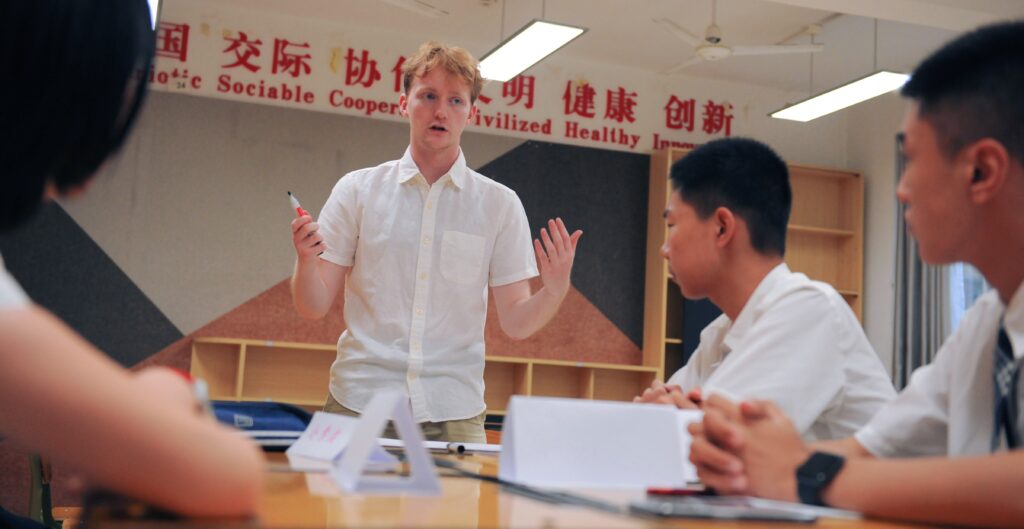
Nathan
The teaching side was very rewarding as we finished each week with Shakespeare performances and presentations of each group’s model city. We worked with some very talented children, but most lacked in confidence, so it was great to see many of them come out of their shells throughout the camp. Working in small groups of 5 or 6 allowed us to form strong connections with the students in our group, being able to make our sessions personalised and thus more effective.
Overall, this journey was like nothing I have ever experienced. I found confidence I didn’t know I had to throw myself into everything we did, which allowed me to hugely enjoy the experience whilst learning so much and developing many transferable skills.
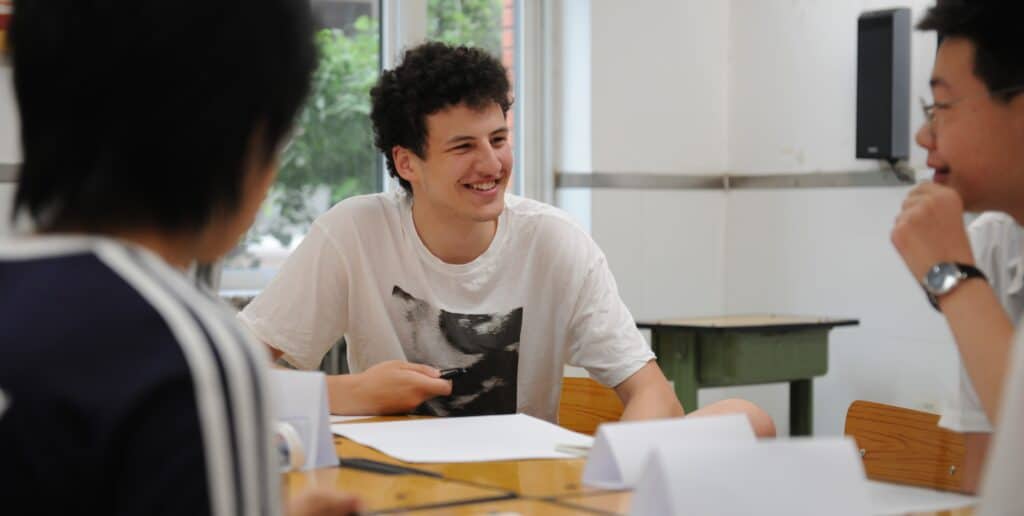
Phoebe
I fell in love with the culture and people, meeting so many kind locals enriched my experience and made leaving a tearful affair. Towards the end of our time there, a student from each of our groups took us to dinner with their family and meeting (possibly the most memorable name of my group) Joker’s parents and being welcomed into their home with a delicious meal and a beautiful stamp book made me feel so incredibly honoured. This was not the only gift I received, with the suitcase ending up much more difficult to close with panda stuffed toys, beautiful fans, hair pins, good luck charms and even an ink print of a stone stele from one of the other local schools in which we were treated to a poignant and beautiful tea ceremony as well as a demonstration (and even small attempt) of the art of the printing from the stele and finally another delicious meal at which we watched the cooks make the refreshing buckwheat noodles. Each was brought back to university with me. Saying goodbye was bittersweet as homesickness had started to set in but I had grown attached to the wonderful flat provided by the school, the incredible food, and the people all of whom made the experience so memorable and life changing.
The trip inspired me to aim to travel more as immersing myself in another culture amongst local people provided an experience vastly different to previous trips abroad. It also provided me with more skills in leadership and organisation, prompting me to expand my abilities outside of the academic, and finally led me to look into more opportunities focused on global outreach.
